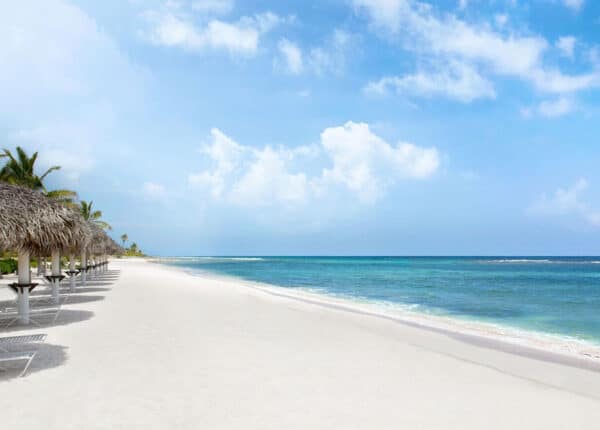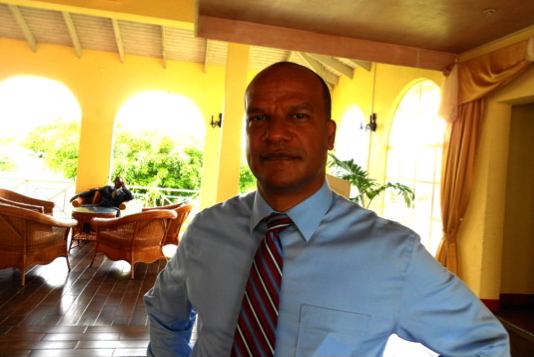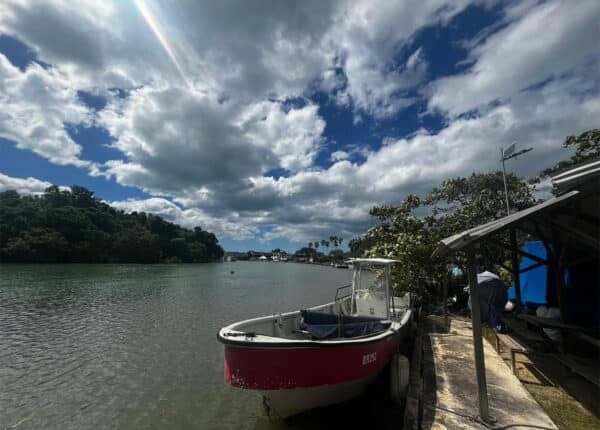Interview with Jamaican Minister of National Security Peter Bunting
By Alexander Britell
GRENADA – The seventh UK-Caribbean Forum that met in Grenada earlier this month looked at a range of areas of cooperation as the Caribbean and the UK open up a “new and more modern relationship” going forward. As part of a series of interviews with leaders at the Forum, Caribbean Journal talked to Jamaican Minister of National Security Peter Bunting about security cooperation, tackling Jamaican crime and the garrison issue.
What were the issues you discussed with the UK on the security side?
We spoke about the major issues confronting the region – the anti-narcotics effort, the anti-gang effort, organized crime generally and specifically the impact of gangs in various territories. We spoke about developing mechanisms to coordinate our efforts, in particular, our intelligence, and about strengthening the capacity of the Caribbean intelligence organizations with additional expertise from the UK. We also, I think, very usefully discussed a further expansion of the role of the assistance given by the Crown Prosecution Service, and in speaking with Patrick Stevens, there is potential for substantial work in Jamaica as well. I look forward to the assistance, because we, for example, in Jamaica, have the experience where we have improved our policing and increased our arrests, but I don’t know if we’re getting any more prosecutions, any more convictions. So we need to look and see what’s the next point in the law enforcement process that has become the bottleneck. I think that intervention will be very helpful for us. We also looked at continued assistance in the areas of anti-corruption and under the serious and organized crime umbrella, and continued assistance with the correctional services and the rehabilitation area.
What are the major priorities for the Ministry of National Security this year?
The first objective is always reducing violent crime. We have made some substantial progress in that regard. But in terms of sustaining it, we’re looking at two additional initiatives to implement that. One is in the area of putting a serious organized crime task force together – we have no equivalent of SOCA [the UK Serious Organised Crime Agency], and often times you end up battling the symptoms at the street level. The analogy I use is, you keep treating the fever, and you’re not getting to the infection. In that case, the infection are the kingpins, the big guys who benefit from the money involved in criminal activity. So we want to set up a task force to really focus on serious and organized crime, without necessarily going through the bureaucracy of having to create a new agency – but just pulling the people from the relevant agencies and intelligence units with the police and military — we have a good anti-corruption unit in the police force – along with pulling people together from the DPP’s office or the Attorney General’s department as necessary to really go after some of those high-value targets.”
What are some of the other areas you’re focusing on?
The other area which is, in a sense, battling the problem from the other side, is through something more similar to social intervention. In the US, for example, you have these community safety auxiliaries. We’re looking to develop a programme where we’re going into communities, identifying potential at-risk youth in the 18 to 25 age group, and recruiting them into a sort of police auxiliary unit. We’d put them through a boot camp-type training experience with some amount of re-socialization, and then put them under the supervision of the community policing units, within the Jamaica Constabulary Force. We’d retain them on sort of a two-year contract, so you’re not only giving them a re-socialization, but you’re giving them the experience, the dignity that comes from a continuing job. And at the end of that two-year period, I think you’ll have somebody who is employable.
You’re not only giving them a re-socialization, but you’re giving them the experience, the dignity that comes from a continuing job. And at the end of that two-year period, I think you’ll have somebody who is employable.”
The best of them may be retained within the force, and the rest will go out into the wider private sector, but much more capable of being recruited successfully and retaining a job from the discipline they got. In the meantime, they’ll also play an important function in terms of being the eyes and ears on the ground in the communities – and supplementing the work of the officers, where they can impact, at the community level, some of the domestic violence that is a significant contributor to our violent crime rate in Jamaica. And they will be able to spot an opportunity where intervention is necessary, and escalate it up to a higher level to hopefully prevent it from reaching the stage where somebody is violent or killed.
Garrisons were a major issue in the election campaign. How much is that a symptom of a larger crime problem, and are garrisons a priority for the Ministry?
The priority is organized crime – criminal gangs and the gang culture. And the garrison is, in a sense, a spinoff phenomenon of that. But again, it’s really not the focus on the garrison – it doesn’t get you much further. The focus must be on the organized crime – attacking organized crime, ensuring you break any links between organized crime and politics. The garrison phenomenon has to be dealt with in a more holistic way – how you neutralize the control and influence of the gangs, and at the same time bring in other governmental agencies to improve the social services in those communities, whether it be in terms of public health, in terms of sanitation, in terms of education, so that you don’t end up with that continuing sort of incubator for potential young criminals.
Extraditions to the United States have been at the forefront of Jamaican politics since 2010 – how do you foresee working with the United States in that regard going forward, and on the general issue of security?
Well, it’s an absolute necessity for us to work with not just the US, but all of our traditional partners In law enforcement. The United Kingdom and the Canadians helped us tremendously in terms of improving our capabilities, particularly in intelligence gathering, in terms of our anti-corruption efforts and in terms of the professionalism and modernization of the JCF. It has been a longstanding strategy of law enforcement in Jamaica — where some of the high-value targets, such as Christopher Coke, would present enormous challenges to give a successful conviction in Jamaica –to cooperate with our partners who have a stronger law enforcement infrastructure to get the extradition convictions in some of those jurisdictions. So that will continue, but at the same time, recognizing that over the long term we have to develop that capability ourselves – and as grateful as we are for the assistance and the cooperation – we recognize that it can’t be permanent. We have to develop that capability ourselves.







